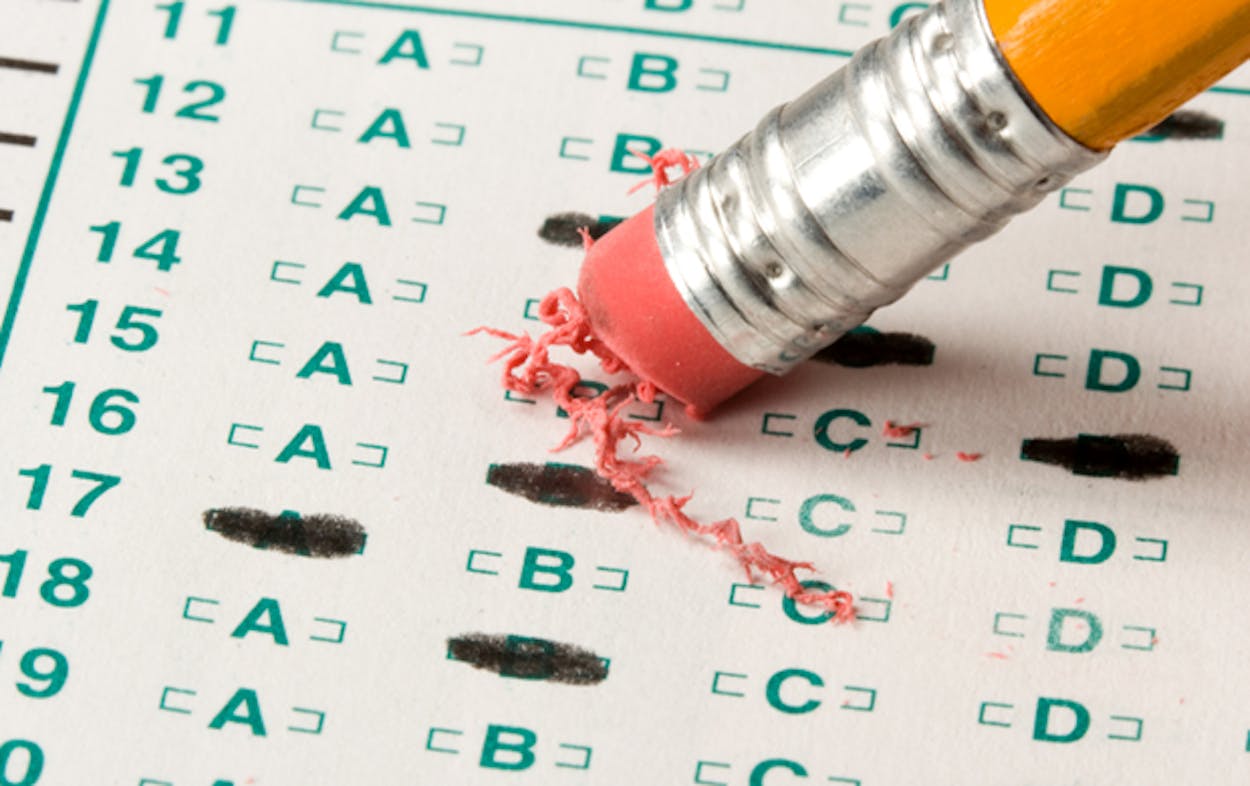The Texas Education Agency may (temporarily) waive the requirement that the new standardized tests count for a large chunk of end-of-course grades.
Four state senators—Florence Shapiro, Royce West, Kel Seliger and Dan Patrick—signed a letter that allows the TEA to delay the requirement, according to the Texas Tribune‘s Morgan Smith, who pointed out that Shapiro previously has been a fierce opponent of any tweaks to the tests’ rollout.
This gives some political cover to Texas Education Agency Commissioner Robert Scott, who, during a speeech in late January to roughly 4,000 educators, rowed away from the idea of weighing the tests so heavily. (In that speech, Scott said testing in Texas had evolved into a “perversion of its original intent” and that he hoped to “reel it back,” Morgan Smith reported.)
The State of Texas Assessments of Academic Readiness tests, or STARR, will be given to students from third to twelfth grades. “[I]n high school, 12 tests will be given at the end of courses in Algebra I and II, geometry, biology, chemistry, physics, English I, II and III, world geography, world history, and U.S. history,” wrote Will Weissert of the Associated Press. Those tests would count for fifteen percent of students’ final grades in their courses.
The senators’ letter would allow ninth graders this year to avoid the tests to be factored into their final grades. The students will, however, still have to pass the tests to graduate.
Many parents have staunchly opposed the tests worrying that it would affect GPAs and eligibility to gain admission to state universities, according to Kate Alexander of the Austin American-Statesman. Meanwhile, Dallas Morning News editorial writer Rodger Jones declared that opposition to the tests from several North Texas superintendents was so strong it amounted to “open rebellion.”
But Bill Hammond, president of the Texas Association of Business, thought the fifteen-percent requirement should stay in place, the Houston Chronicle‘s Ericka Mellon reported Tuesday, holding that “delaying the grade rule would render the tests nearly meaningless for students this year,” Mellon wrote.







